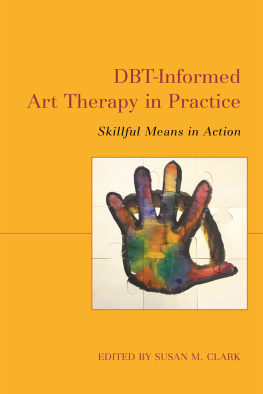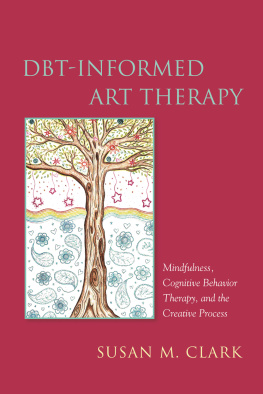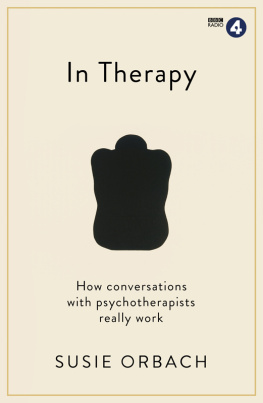First published by
The Haworth Press, Inc.
10 Alice Street
Binghamton, N Y 13904-1580
This edition published 2011 by Routledge
Routledge
Taylor & Francis Group
711 Third Avenue
New York, NY 10017
Routledge
Taylor & Francis Group
2 Park Square, Milton Park
Abingdon, Oxon OX14 4RN
The Foundation and Future of Feminist Therapy has been co-published simultaneously as Women & TherapyTM, Volume 28, Numbers 3/4 2005.
2005 by The Haworth Press, Inc.
All rights reserved. No part of this work may be reproduced or uti-
lized in any form or by any means, electronic or mechanical, including photocopying, microfilm and recording, or by any information storage and retrieval system, without permission in writing from the publisher.
The development, preparation, and publication of this work has been undertaken with great care. However, the publisher, employees, editors, and agents of The Haworth Press and all imprints of The Haworth Press, Inc., including The Haworth Medical Press and Pharmaceutical Products Press, are not responsible for any errors contained herein or for consequences that may ensue from use of materials or information contained in this work. Opinions expressed by the author(s) are not necessarily those of The Haworth Press, Inc. With regard to case studies, identities and circumstances of individuals discussed herein have been changed to protect confidentiality. Any resemblance to actual persons, living or dead, is entirely coincidental.
Cover design by Lora Wiggins
Library of Congress Cataloging-in-Publication Data
The foundation and future of feminist therapy / Marcia Hill, Mary Ballou, editors.
p. cm.
"Co-published simultaneously as Women & therapy, volume 28, numbers 3/4 2005."
Includes bibiographical references and index.
ISBN-13: 978-0-7890-0201-3 (hc.: alk. paper)
ISBN-10: 0-7890-0201-9 (hc.: alk. paper)
ISBN-13: 978-0-7890-0217-4 (pbk.: alk. paper)
ISBN-10: 0-7890-0217-5 (pbk.: alk. paper)
1. Feminist therapy. I. Hill, Marcia. II. Ballou, Mary B., 1949- III. Women & therapy.
RC489.F45F68 2005
616.89'14-dc22
2004022800
About the Editors
Marcia Hill, EdD, is a psychologist who has spent almost 30 years practicing psychotherapy. She is a former editor of the journal Women & Therapy and a member and past Chair of the Feminist Therapy Institute. In addition to therapy, Dr. Hill does occasional teaching, writing, and consulting in the areas of feminist therapy theory and practice. She is the author of Diary of a Country Therapist and has edited nine prior books about various aspects of feminist therapy, including More Than a Mirror: How Clients Influence Therapists Lives . She is currently in private practice in Montpelier, Vermont.
Mary Ballou, PhD, is Professor of Counseling Psychology at Northeastern University, a practicing psychologist who holds a Diplomate from the American Board of Professional Psychology, Co-Chair of the Graduate Consortium of Womens Studies Programs in the Boston area, and Chair of the Feminist Therapy Institute. She has published five books in health counseling and feminist psychology and numerous chapters and research studies. Most recently she has been working with her students and multidisciplinary professionals on a project with Family Court to develop a tool to introduce psychosocial factors into judicial decision making in temporary child placement and restraining orders.
Marcia Hill and Mary Ballou would like to thank Tina Jeong for her able editorial assistance.
Marcia Hill
This is a critical time for feminism in general and for feminist therapy in particular. We have made many gains: feminist principles have been incorporated to some extent into ethics codes and into norms of generally accepted practice. Nonetheless, there has been a lengthy and increasingly powerful political swing to the right, especially in the U.S. This has not left the practice of psychotherapy unaffected. So although professional organizations now recommend sensitivity to a clients race, gender and sexual orientation, therapist autonomy is increasingly restricted to techniques and time lines that serve the insurance industry rather than clients. While awareness of violence against women is now commonplace among clinicians, human pain has become increasingly defined in medical, rather than psychological or sociopolitical, terms. Even the language of therapy has been co-opted by the insurance industry: Therapists are now providers, clients are consumers, and psychotherapy is behavioral care (as if all problems were behavioral). Words like emotions have been all but eliminated from the lexicon of psychotherapy. Language shapes reality, and the industry-driven language of therapy would have us see pain as biological and behavioral and help as drugs and the application of brief outcome-based treatments. There is little place in this realm for looking at problems as responses to cultural injuries or for accompanying the client in a search for her own solutions and truths.
It is in this context that these authors contribute to this volume, which looks both backward to the roots of feminist therapy and forward to its possibilities. We offer also an analysis of the contemporary challenges to feminist therapy theory and practice.
We look at the foundations of feminist therapy from two organizing perspectives. One is its placement in time. The work of the earliest theorists (pre-1985) is examined by Susan Contratto and Jessica Rossier; Natalie Porter presents feminist therapys primary theorists after that date. These authors have selected, in consultation with colleagues, those contributors to the foundations of feminist therapy whose work stands out either for originality or impact. The second frame is based more on content, pulling together four of feminist therapys significant themes. Here, Susan Barrett reviews multicultural feminist therapy, focusing specifically on race and ethnicity. Laura Brown, Laurie Riepe and Rochelle Coffey look at the contributions of writers who have examined feminist therapy through the lenses of other differences, such as sexual orientation, ability and disability, aging, refugee and immigrant status, and social class. These perspectives come out of feminisms recognition that woman is not a unidimensional construct, and that to understand any woman, you must first understand her placement in her family; in her communities; and in the various social groupings of which she is a member, such as race or class (). Carolyn West describes the work of the relational-cultural theorists, whose influence has been significant in feminist therapy theory. Denise Webster and Erin Dunn review those authors whose work comes out of trauma theory, recognizing that in a culture of gendered and sexualized oppression, much of what women bring to therapy is a consequence of sexual abuse, battering and rape. All of these contributors end with a look at possible lessons that come out of the work they have reviewed, lessons that can and will be used as a foundation for feminist therapys future.










